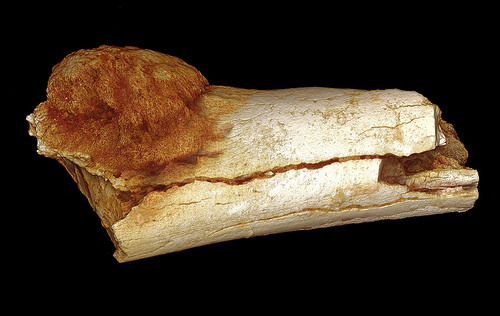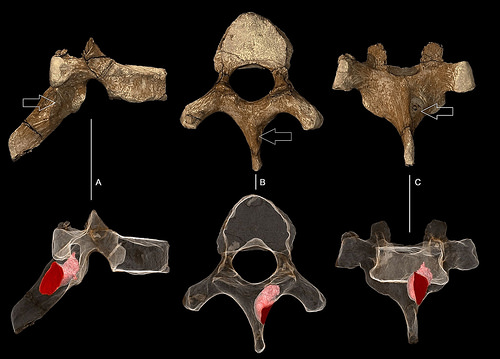“Modern medicine tends to assume that cancers and tumours in humans are diseases caused by modern lifestyles and environments. Our studies show the origins of these diseases occurred in our ancient relatives millions of years before modern industrial societies existed” – Edward Odes.

JOHANNESBURG, SOUTH AFRICA – researchers have discovered evidence of cancer in a foot bone that’s 1.7 million years old.
“Going Paleo” is the new vegan. Health experts, nutritionists, and naturopathic doctors have been recommending it for years. Supposedly, it’s the healthiest diet you can possibly adopt. It’s based on the types of foods we believe early humans ate, made up of meat, fish, vegetables, nuts and seeds, healthy fats, and fruit. It excludes all dairy and grain products and all processed food. The reported health benefits of a Paleo lifestyle are stable blood sugar, reduced allergies, balanced energy, clear skin and better teeth, and improved sleep, among other things.
It’s also supposed to greatly reduce your risk of developing cancer, according to some people.
For years, the assumption has been made that cancer and tumors are a health problem directly related to modern society, almost like a curse. This new discovery is challenging that assumption.
The team that made the discovery was made up of international researchers led by scientists from the University of Witwatersrand’s Evolutionary Studies Institute and the South African Centre for Excellence. They published their find in the South African Journal of Science.
What is it? Well, the short answer is cancer in a foot bone.
The foot bone is from a human, and it was found in Swartkrans, and has “definite evidence of malignant cancer”. The cancer was identified as being osteosarcoma. It’s an aggressive form of cancer that is usually found in young people in modern humans. It will almost always result in an early death.
The archaeologists aren’t exactly sure whether the bone is from an adult human or a child, or whether or not the cancer was fatal. There simply isn’t enough information on the bone itself. However, they do know that it would have greatly hampered the person’s ability to move. The cancer would have been extremely painful for them.

Another, similar find was made by Professor Lee Berger. A benign tumor was found in the back vertebrae in a fossil of a child called Australopithecus sediba. It’s an unique and fascinating find, researchers say, because cancer is rarely found in the back in modern humans. Not only that, but it’s the very first evidence of cancer in such a young person in the entire fossil record.
How did the researchers make these discoveries? They used imaging technologies at European Synchroton Research Facility in Grenoble France, as well as some other state-of-the-art technologies at medical facilities in Johannesburg and Pelindaba in South Africa. It’s a great example of modern clinical studies and archaeology joining forces to understand disease as it has affected the human race, both in the past and the present, in a hope to better combat it in the future.
So, is a Paleo diet really worth it? Not if you’re expecting it to stop cancer in its tracks, at least. But there’s something to be said for eating more fruits and vegetables and less processed food. What this really means, ultimately, is that it’s up to you whether or not changing how you eat is worth it in the long run.
“Not only has there been an assumption that these sorts of cancers and tumors are diseases of modernity, which these fossils clearly demonstrate they are not, but that we as modern humans exhibit them as a consequence of living longer, yet this rare tumor is found in a young child. The history of these types of tumors and cancers is clearly more complex than previously thought” – Professor Lee Berger, Leader of the Malapa Project.